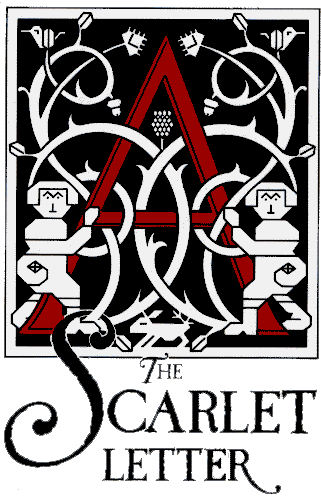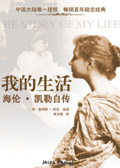奥兰多orlando (英文版)作者:弗吉尼亚·伍尔芙-第45章
按键盘上方向键 ← 或 → 可快速上下翻页,按键盘上的 Enter 键可回到本书目录页,按键盘上方向键 ↑ 可回到本页顶部!
————未阅读完?加入书签已便下次继续阅读!
tood looking at the fair; indifferent spectacle with staring eyes。 At length she was revived in a singular way。 The manuscript which reposed above her heart began shuffling and beating as if it were a living thing; and; what was still odder; and showed how fine a sympathy was between them; Orlando; by inclining her head; could make out what it was that it was saying。 It wanted to be read。 It must be read。 It would die in her bosom if it were not read。 For the first time in her life she turned with violence against nature。 Elk–hounds and rose bushes were about her in profusion。 But elk–hounds and rose bushes can none of them read。 It is a lamentable oversight on the part of Providence which had never struck her before。 Human beings alone are thus gifted。 Human beings had bee necessary。 She rang the bell。 She ordered the carriage to take her to London at once。
‘There’s just time to catch the eleven forty five; M’Lady;’ said Basket。 Orlando had not yet realized the invention of the steam engine; but such was her absorption in the sufferings of a being; who; though not herself; yet entirely depended on her; that she saw a railway train for the first time; took her seat in a railway carriage; and had the rug arranged about her knees without giving a thought to ‘that stupendous invention; which had (the historians say) pletely changed the face of Europe in the past twenty years’ (as; indeed; happens much more frequently than historians suppose)。 She noticed only that it was extremely smutty; rattled horribly; and the windows stuck。 Lost in thought; she was whirled up to London in something less than an hour and stood on the platform at Charing Cross; not knowing where to go。
The old house at Blackfriars; where she had spent so many pleasant days in the eighteenth century; was now sold; part to the Salvation Army; part to an umbrella factory。 She had bought another in Mayfair which was sanitary; convenient; and in the heart of the fashionable world; but was it in Mayfair that her poem would be relieved of its desire? Pray God; she thought; remembering the brightness of their ladyships’ eyes and the symmetry of their lordship’s legs; they haven’t taken to reading there。 For that would be a thousand pities。 Then there was Lady R。’s。 The same sort of talk would be going on there still; she had no doubt。 The gout might have shifted from the General’s left leg to his right; perhaps。 Mr L。 might have stayed ten days with R。 instead of T。 Then Mr Pope would e in。 Oh! but Mr Pope was dead。 Who were the wits now; she wondered—but that was not a question one could put to a porter; and so she moved on。 Her ears were now distracted by the jingling of innumerable bells on the heads of innumerable horses。 Fleets of the strangest little boxes on wheels were drawn up by the pavement。 She walked out into the Strand。 There the uproar was even worse。 Vehicles of all sizes; drawn by blood horses and by dray horses; conveying one solitary dowager or crowded to the top by whiskered men in silk hats; were inextricably mixed。 Carriages; carts; and omnibuses seemed to her eyes; so long used to the look of a plain sheet of foolscap; alarmingly at loggerheads; and to her ears; attuned to a pen scratching; the uproar of the street sounded violently and hideously cacophonous。 Every inch of the pavement was crowded。 Streams of people; threading in and out between their own bodies and the lurching and lumbering traffic with incredible agility; poured incessantly east and west。 Along the edge of the pavement stood men; holding out trays of toys; and bawled。 At corners; women sat beside great baskets of spring flowers and bawled。 Boys running in and out of the horses’ noses; holding printed sheets to their bodies; bawled too; Disaster! Disaster! At first Orlando supposed that she had arrived at some moment of national crisis; but whether it was happy or tragic; she could not tell。 She looked anxiously at people’s faces。 But that confused her still more。 Here would e by a man sunk in despair; muttering to himself as if he knew some terrible sorrow。 Past him would nudge a fat; jolly–faced fellow; shouldering his way along as if it were a festival for all the world。 Indeed; she came to the conclusion that there was neither rhyme nor reason in any of it。 Each man and each woman was bent on his own affairs。 And where was she to go?
She walked on without thinking; up one street and down another; by vast windows piled with handbags; and mirrors; and dressing gowns; and flowers; and fishing rods; and luncheon baskets; while stuff of every hue and pattern; thickness or thinness; was looped and festooned and ballooned across and across。 Sometimes she passed down avenues of sedate mansions; soberly numbered ‘one’; ‘two’; ‘three’; and so on right up to two or three hundred; each the copy of the other; with two pillars and six steps and a pair of curtains neatly drawn and family luncheons laid on tables; and a parrot looking out of one window and a man servant out of another; until her mind was dizzied with the monotony。 Then she came to great open squares with black shiny; tightly buttoned statues of fat men in the middle; and war horses prancing; and columns rising and fountains falling and pigeons fluttering。 So she walked and walked along pavements between houses until she felt very hungry; and something fluttering above her heart rebuked her with having forgotten all about it。 It was her manuscript。 ‘The Oak Tree’。
She was confounded at her own neglect。 She stopped dead where she stood。 No coach was in sight。 The street; which was wide and handsome; was singularly empty。 Only one elderly gentleman was approaching。 There was something vaguely familiar to her in his walk。 As he came nearer; she felt certain that she had met him at some time or other。 But where? Could it be that this gentleman; so neat; so portly; so prosperous; with a cane in his hand and a flower in his button–hole; with a pink; plump face; and bed white moustaches; could it be; Yes; by jove; it was!—her old; her very old friend; Nick Greene!
At the same time he looked at her; remembered her; recognized her。 ‘The Lady Orlando!’ he cried; sweeping his silk hat almost in the dust。
‘Sir Nicholas!’ she exclaimed。 For she was made aware intuitively by something in his bearing that the scurrilous penny–a–liner; who had lampooned her and many another in the time of Queen Elizabeth; was now risen in the world and bee certainly a Knight and doubtless a dozen other fine things into the bargain。
With another bow; he acknowledged that her conclusion was correct; he was a Knight; he was a Litt。D。; he was a Professor。 He was the author of a score of volumes。 He was; in short; the most influential critic of the Victorian age。
A violent tumult of emotion besieged her at meeting the man who had caused her; years ago; so much pain。 Could this be the plaguy; restless fellow who had burnt holes in her carpets; and toasted cheese in the Italian fireplace and told such merry stories of Marlowe and the rest that they had seen the sun rise nine nights out of ten? He was now sprucely dressed in a grey morning suit; had a pink flower in his button–hole; and grey suede gloves to match。 But even as she marvelled; he made another bow; and asked her whether she would honour him by lunching with him? The bow was a thought overdone perhaps; but the imitation of fine breeding was creditable。 She followed him; wondering; into a superb restaurant; all red plush; white table–cloths; and silver cruets; as unlike as could be the old tavern or coffee house with its sanded floor; its wooden benches; its bowls of punch and chocolate; and its broadsheets and spittoons。 He laid his gloves neatly on the table beside him。 Still she could hardly believe that he was the same man。 His nails were clean; where they used to be an inch long。 His chin was shaved; where a black beard used to sprout。 He wore gold sleeve–links; where his ragged linen used to dip in the broth。 It was not; indeed; until he had ordered the wine; which he did with a care that reminded her of his taste in Malmsey long ago; that she was convinced he was the same man。 ‘Ah!’ he said; heaving a little sigh; which was yet fortable enoug



![[综]God Is Girl封面](http://www.8kbook.com/cover/40/40665.jpg)
![[bbcsherlock]致我心中的你封面](http://www.8kbook.com/cover/42/42052.jpg)
